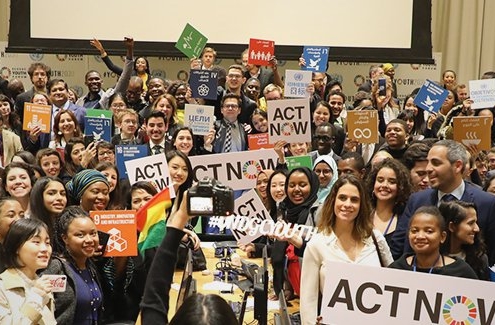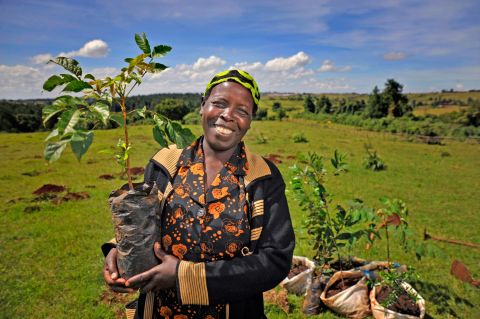Economic development and humanitarian assistance
| Millennium Development Goals | |
| 1. Eradicate extreme poverty and hunger
2. Achieve universal primary education 3. Promote gender equality and empower women 4. Reduce child mortality 5. Improve maternal health 6. Combat HIV/AIDS, malaria, and other diseases 7. Ensure environmental sustainability 8. Develop a global partnership for development |
|
Another primary purpose of the UN is “to achieve international cooperation in solving international problems of an economic, social, cultural, or humanitarian character”.[ Numerous bodies have been created to work towards this goal, primarily under the authority of the General Assembly and ECOSOC. In 2000, the 192 UN member states agreed to achieve eight Millennium Development Goals by 2015. The Sustainable Development Goals were launched in 2015 to succeed the Millennium Development Goals.[71] The SDGs have an associated financing framework called the Addis Ababa Action Agenda.
The UN Development Programme (UNDP), an organization for grant-based technical assistance founded in 1945, is one of the leading bodies in the field of international development. The organization also publishes the UN Human Development Index, a comparative measure ranking countries by poverty, literacy, education, life expectancy, and other factors. The Food and Agriculture Organization (FAO), also founded in 1945, promotes agricultural development and food security.[159] UNICEF (the United Nations Children’s Fund) was created in 1946 to aid European children after the Second World War and expanded its mission to provide aid around the world and to uphold the convention on the Rights of the Child.

Three former directors of the Global Smallpox Eradication Programme reading the news that smallpox has been globally eradicated in 1980


